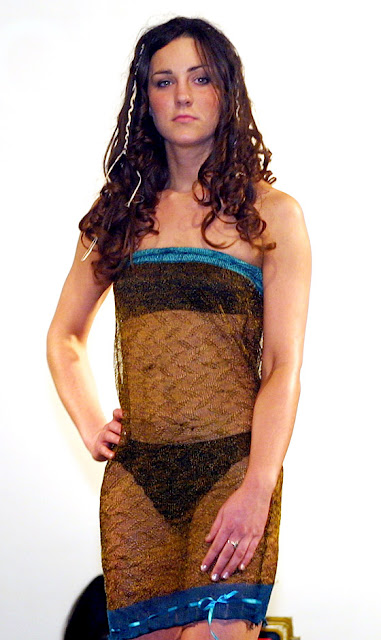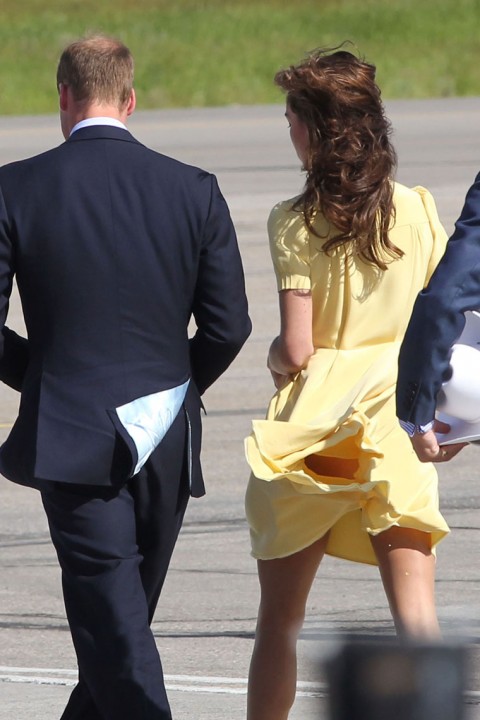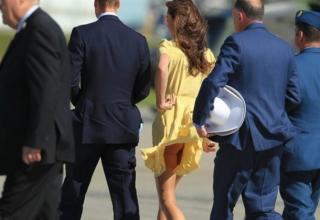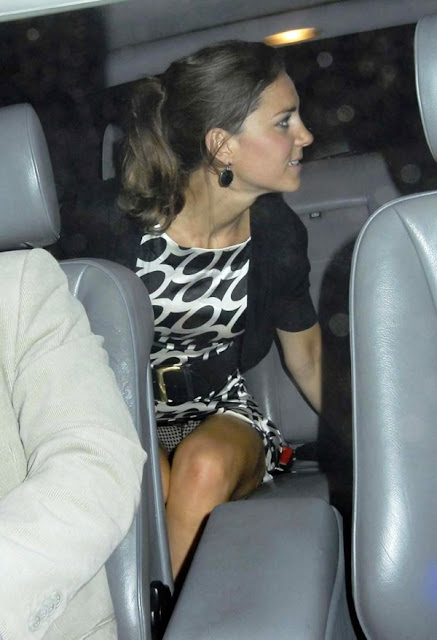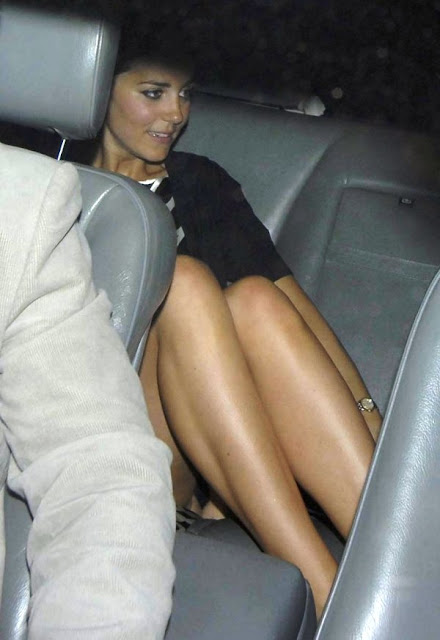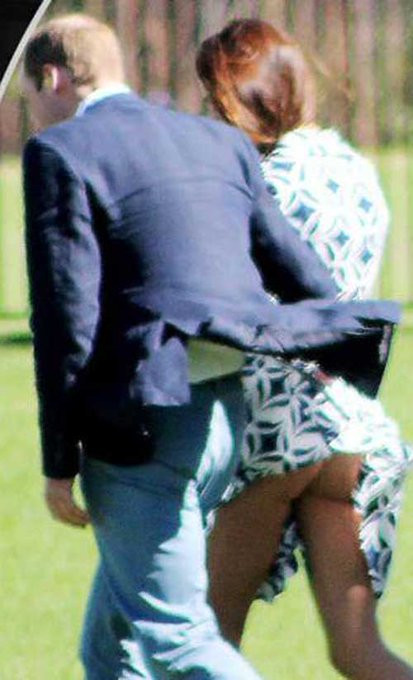Muscovite wins Wimbledon, Duchess of See-thru-nightie presents trophy, UK Government made to appear absurd (and must be livid)
It appears to be the case that, when Elena Rybakina reached the semi-finals of Wimbledon this year, then this caused UK Government to become concerned of a propaganda malfunction. And let us be clear, the malfunction in question is not one where a foreign power – in this case Russia – is handed a chance to make public relations hay; instead, it’s a case of UK Government’s own efforts failing in a fashion so that it looks absurd and is humiliated.
If the reader doesn’t know by now, Wimbledon banned Russians and Belarusians from participating in the 2022 championships, on orders (called guidance) from UK Government. There was no attempt by Wimbledon, as a supposedly private and independent organisation, to consider the rights and wrongs of the Special Military Operation; there was only acceptance of UK Government’s perspective, which is one of an assassin which is having the point of its blade forcibly removed from its target’s ribs. As such, the general pretext for the ban was to prevent positive encounters with things Russian in the light of an “invasion” of Ukraine which can only be considered and reacted to as belligerent.
And, although one can portray this ban – and corporate-media did – as preventing an opportunity to be seized by cunning Russian propagandists should a Russian or Belarusian win any of the titles, it was totally about making sure that nothing could happen in the Championships to counter a process of complete demonization of Russia according to the above stated perspective; in other words, no Russians and Belarusians there to be seen as human beings. A statement put out by the All England Club (which hosts the Wimbledon Championship) says as much:
“Given the profile of The Championships in the United Kingdom and around the world, it is our responsibility to play our part in the widespread efforts of Government, industry, sporting and creative institutions to limit Russia’s global influence through the strongest means possible.
“In the circumstances of such unjustified and unprecedented military aggression, it would be unacceptable for the Russian regime to derive any benefits from the involvement of Russian or Belarusian players with The Championships.”
It is with great interest that the author observes that the chairman of the All England Club, Ian Hewitt, recognised that the ban was “hard on the individuals affected”, and supposes that what is being understood is that Wimbledon is not the Olympics and there is no participation in the capacity of representing a collective, country or otherwise. As such, the author wonders why it does not follow that there should be no guilt by association? Of course, the answer is because of political choices, and because All England Club officials know full well that there is an absolute emphasis on national identity at Wimbledon all in the aid of UK Government propaganda, where the British public are presented with players who “represent the United Kingdom”, and while these people are more often than not mediocre, the public is without exception excited into expecting more of them than their ability can produce – all for the purpose of boosting pride in the collective identity. It is the ultimate in pot calling the kettle black when UK Government wants to accuse Russia of politically exploiting some tennis matches.
That little else should be expected is something that anyone who observes UK Government anti-Russian propaganda will know: it is a hallmark of coverage of the Special Military Operation in Mi7 (corporate-media), or directly by its masters at the Ministry of Defence to project its own side’s characteristics and doings upon the Russians.
This is why, evidently, much pressure would be applied on Rybakina, as soon as she became of a higher profile at Wimbledon, to have her make certain denunciations so that, at least as far as things were imagined in the paranoid minds of military intelligence steered UK Government, capitalisation by Russia could be countered. If the reader is wondering why Rybakina should so suffer, not being subject to the ban herself so that she was a competitor at the tournament, then he will have been hiding under a rock, for all the world knows that Rybakina is Moscow-born, and hails from that city before the tennis tour gave her a nomadic life-style, but plays under the sponsorship of Kazakhstan, and represents that country in tournaments, unlike Wimbledon, where players do play under a flag.
If one looks at the collection of post-match press conferences hosted on the Wimbledon website, Rybakina starts to feature after her fourth-round (last 16) match, while there are videos of the likes of Ons Jabeur, Simona Halep, and Iga Swiatek being interviewed all the way through their progression from their preliminary ties. Presumably, not every player in the draw gets to have a press conference, and feasibly, of those who do, Wimbledon only presents ones of most interest in relation to the competition, and clearly Rybakina was not being followed like others who would have been considered favourites for the title.
The press conferences see questions from people who may well be real tennis specialist “journalists”, having various accents from across the English speaking world, mostly, and sometimes from other places. Rybakina’s first press conference is unremarkable and one of these. However, when Rybakina won her way through to the semi-finals, Mi7-accented questions were put to her regarding what might be called her Russian baggage, with little to do with tennis, and everything to do with military-intelligence stroppiness.
In the press conference after her quarter-final match, Rybakina was confronted by people who were, in a shifty manner that was entirely obvious in the way remarks were made to her, firstly asking her to comment on her coming to represent Kazakhstan, and then secondly, if she felt she was Kazakh or Russian. It is quite possible, reader, that Rybakina has dual citizenship, and so this transparent attempt to have her publically reject Russia was either put to her by an over hopeful idiot, or someone looking to embarrass her: Rybakina did not give the answer that was being sought, and probably could not. Instead, she explained that she had represented Kazakhstan in tennis so as to promote the game in that country, had literally done so at the Olympics, and all in return for help and support (financial, especially) because tennis was an expensive sport, and she might not have been able to turn professional otherwise.
Rybakina was then asked if she had been concerned before the competition that the ban would affect her, with her having being born in Russia. She replied not in reference to herself, very intelligently, but to the Russian players who it was hard for because they only wanted to compete in sport, and that they didn’t choose where they were born. Of course, the truism about having no control over things by which a penalty was being imposed could have been an allusion to herself in direct response to the question, but its power resided in that it applied in any circumstance to anyone who fell afoul of some ruling that collectively punished them.
And so, not having being given the desired response (i.e. that the ban was deserved), and having been outwitted by a slip of a girl who wouldn’t have been versed in all the techniques of sneakiness that he would have been, the Mi7-accented interviewer, in a development that makes one want to have been present with a baseball bat, resorted to openly talking about the “horrendous time[being had] in Ukraine”, and wanted Rybakina to use her platform to state her hope that the war will come to an end as soon as possible. In this, however, the slyness of the Mi7-accented man was his undoing, what with his not daring to be too obvious and insulting (and hurt his own case), for Rybakina quickly agreed that there should be peace – on what terms she did not explain.
When Rybakina unexpectedly beat Halep in her semi-final appearance, she faced a bull-headed press contingent asking the same questions, but this time, the Americans (the New York Times to be exact) were on shift. Rybakina was as unvarying with her answers, and even referred to the previous press conference of which this one was coming to duplicate. Along with the American variety of corporate-media-intelligence-complex operatives there was an Mi7-accented interviewer – a female this time, proving that the glass ceiling really has nothing to do with ability – who wanted Rybakina to clarify if she lived in Moscow. Rybakina said she lived all over the place travelling between competitions. If she hadn’t wanted to be so accommodating, she could have pointed out that living in Moscow wasn’t the criteria by which Wimbledon had banned some players.
After the final, after Rybakina had received the trophy from a most eminent member of the UK’s upper echelons, and had lifted it up in the Centre Court, applauded by a crowd of thousands, the gloves were off, and there was no doubting that UK Government was fuming that it had been out-manoeuvred so entirely Br’er Rabbit style. The Mi7-accented men were back, and they were blunt. Was there a concern that Russia may politicise this win? Rybakina: I cannot do anything about this. Next, would Rybakina like to condemn Russia’s invasion of Ukraine? What was it to do with her?, was the gist of her reply. Despite the more overtly insistent (and desperate) approach, there was no cigar for Mi7, and the absurdity of UK Government was not abated. Ownership of her share in the denunciation of Russia could not be wrung from the winner of Wimbledon, but UK military intelligence demonstrated its totalitarian self by making the demand of her.
What ultimately exposes the UK Government as paranoid authoritarian despot after the nature of Orwell’s “The Party” of Nineteen Eighty Four is that that which it was preparing against when it repeatedly insulted Elena Rybakina has not materialised. The Russian Government has not politicised the win. The closest anyone has got to claiming the victory for Russia (as far as English-language corporate media can report) is the Russian tennis federation chief, who (not incorrectly) said that Rybakina’s win was a product of the Russian system.
In fact, all the threat to UK Government and its control on perception comes from other directions. When the ban was announced, the world tennis bodies called it discriminatory, and stripped Wimbledon of its status to award ranking points as per the global scheme, so that it essentially operated this year as a high-profile exhibition event. As such, it needs to be understood that it was the ban that was controversial, not any opposition to it. Needless to say, outspokenness at the tournament was buttoned up, but was voiced at a crucial moment by the American former Wimbledon men’s champion, John McEnroe, who had the temerity to do it amid what was clearly an atmosphere of fierce censorship (Tennis365 reports that McEnroe indicated that producers were telling him to shut up about the topic), and drew attention to the absurdity of the ban on live BBC TV: something that could not stop a person effectively Russian from competing and winning the tournament – as McEnroe suggested. Moreover, (and this is not McEnroe’s view, but something additional that we should all be able to see) the ban failed in its primary purpose in that a person effectively Russian was allowed to counter UK Government’s demonization propaganda.
On that point, actually, Elena Rybakina – as a product of Russia – could be juxtaposed to that model of British womanhood, the slutty Duchess of Cambridge, formerly Kate Middleton, as the two met on the Centre Court, the one to receive a trophy from the other (as actual patron of the All England Club) in a super redundant emperor-gladiator relationship that the people of Britain somehow still tolerate. This issue is important, because it appears that at the crux of the ban on Russians was a concern that prestige would be imparted to them by having royalty present a winner’s prize to them, or that the image of royalty would somehow suffer by the same act. Either way, the following is as much as The Telegraph would elucidate at the time of the announcement of the ban:
It is understood that the optics of a potential trophy presentation on Centre Court has been high on decision-makers’ minds.
When Kate Middleton was a bit younger than Rybakina, she hadn’t been making hard sacrifices to become the best in the world in a particular field; instead, she had been gold-digging at university by appealing to her future husband’s base nature, and the bulge in his trousers, in a see-thru-nightie: “It wasn’t until Kate donned her risqué outfit that she really caught Prince William’s eye”, reports The Sun in a 2018 retelling. The amazing thing is that, as sordid as this story is, it’s held up as some kind of modern fairy-tale – which would be fine if it was about how two private charvers became romantically attached, but it is not. The issue is about who and how a ruler by birth elects a commoner into his social dimension and realm of being influential, and how that choice, in fact, is indicative of this birth right to rule being invalid; i.e. there is a demonstration of not being fit to rule.
Now, this is not the time to debate to what extent a King over the UK would rule; the very least that needs to be said is that there is power in being a front for the City of London (which is what the Monarch is). William will claim this power on the basis of being better than the rest of us, and on this basis, we have very good reason to expect – as those placed under a King’s authority – the coupling between him and his future wife to have begun along lines Darcy-esque; i.e. “The relative situation of our families is such that any alliance between us must be regarded as a highly reprehensible connection… [but] Almost from the earliest moments of our acquaintance I have come to feel for you a passionate admiration and regard, which despite of my struggles, has overcome every rational objection”. However, for this current crop of royals, there is nothing so intellectual that they can achieve, and judging by the exploits of Kate Middleton especially (who seems to favour a thong or G-string arrangement down-below, perhaps so that the dim-witted William doesn’t have too much cloth to remove before he can no longer contain his arousal – see images below) they can only elevate commoners to be their wives, it seems, on the ground of being a suitably saucy mare with which to breed. The objection about this state of affairs, if it seems in any way too frivolous to be taken seriously, was explained elsewhere in these pages, and here it is republished:
Who, in these days of equality and inclusion, gets to be a royal parasite? We now have a state of affairs where two commoners, one of them not even British, have become entitled to the bountiful rewards of the Crown (the fiction that obscures the reality of the Commonwealth – which, essentially, is what it says on the tin – for the purpose of stealing it). And they are elected to it through marriage – but why should they be? In an age where marriage is no longer the means by which the privilege of British nationality is bestowed upon a foreigner – instead, it is gifted by the Government as it sees fit – why should the Royals maintain private control over who is appointed to a position whereby they enjoy the privilege of being the ruling elite? The elevation of Joe Public into Monarchy (unthinkable even 30 years ago) isn’t a demonstration that the Royal Family is an anomalous institution in modern post-normal,… Luciferian, World State principality Britain; it shows that the very rich and powerful opt in for the sake of optics and politics, but mostly are not subject to the conditions by which everyone else’s lives are ruined.
Kate Middleton to be Queen is not an exercise in levelling up by which normal people can affect the levers of power, it is the rich and powerful making an exception for the sake of optics and politics, happy to do so for her appeal to an heir to the Crown as a dam. But this is a double-edged sword, because if Kate Middleton can be Queen, the authority by which she has been so elevated doesn’t exist.
So, returning to the thrust of the piece, it is of course preposterous that any self-respecting person, let alone a Russian, could steal any lustre from such a low calibre creature as the Duchess of See-thru-nightie, or indeed any one of a number of parasites that Wimbledon could care to muster in their Royal Box on a finals day – but in the end, this is what the Russians were banned for, and it is a testimony to the sickness and the advanced state of decay of the UK’s ruling class.
And it’s very important as a cognitive jolt to break the hypnosis induced by UK Government propaganda that is was Rybakina who emerged as the person who would, as the king-god mythology goes, receive the beneficence of royalty at Wimbledon, not only because she (unwittingly) brought that conflict to the culmination of Wimbledon that UK Government had worked so assiduously to avoid, but because she is a better person than the raggedy character that UK Government didn’t want to soil by being in the company of Russians.
And it is worth remembering that, with her refusal to emote during her matches (even when winning the Ladies’ title) – much to the disappointment of press conference interviewers who evidently wanted to see usual modern degradation – Rybakina served to remind of a kind of Briton that existed until very recently and the coming of the cultural revolution. Call Rybakina Russian, or call her Kazakh – there’s no denying this: the British system produces Kate Middleton, and the Russian one produces a middle class woman of a quality that this country (Britain) used to be able to. There’s no need to look very far for the real reasons why the world is at this time seeing a shift in the balance of moral, intellectual, economic – whatever else one cares to name – primacy. And UK Government can get as stroppy as it likes about this change and how it manifests itself even in the very deepest recesses of its control: it’s not going to make any difference.




